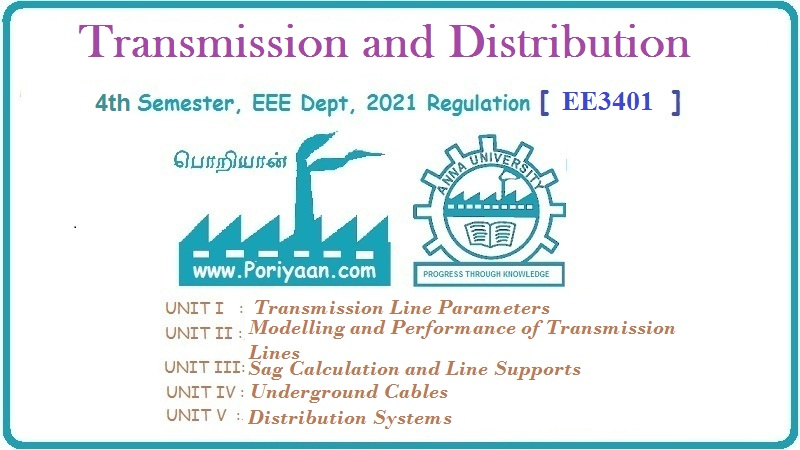Transmission and Distribution: Unit V: (b) Substations and Grounding
Introduction to Grounding
Question : 1. Explain the need for neutral earthing in power system.
Introduction to Grounding
The earthing or grounding is nothing but
the connection of neutral point of the supply system to the general mass of
earth in such a way that immediate discharge of electricity can take place
without danger.
When grounding is provided then it
ensures the safety of personnel against electrical shocks and avoids accidents.
The equipment is also protected against lightning and voltage surges. The
voltage stress on lines is reduced along with that on the equipments with
respect to earth under abnormal conditions. With earthing, the earth fault
currents are controlled for protective relays.
There are two ways in which the three
phase systems can be operated. These are viz. with isolated neutral and with
earthed neutral.
But presently isolated neutral system is
not used as with such system during fault, large transient voltages with
magnitude several times that of normal value is produced which may cause
breakdown of insulation. This results in damage of the concerned equipment and
interruption of the supply system. Inspite of this the advantage of this system
is under earth fault on one of the phases, the remaining two healthy phases
will continue supplying load for a shorter period.
Review Question
1. Explain the need for neutral earthing in power system.
Transmission and Distribution: Unit V: (b) Substations and Grounding : Tag: : - Introduction to Grounding
Related Topics
Related Subjects
Transmission and Distribution
EE3401 TD 4th Semester EEE Dept | 2021 Regulation | 4th Semester EEE Dept 2021 Regulation
